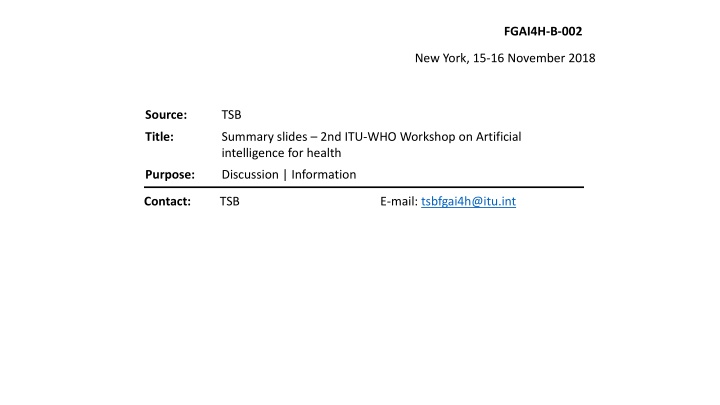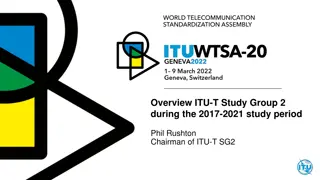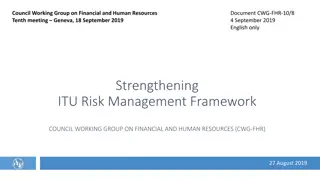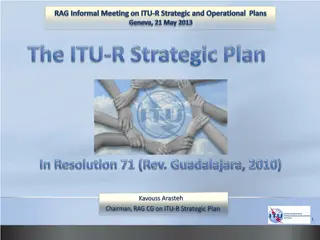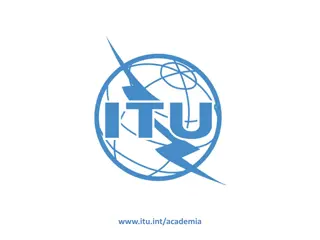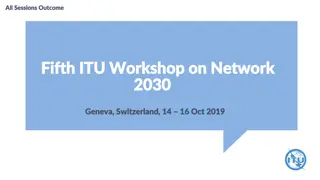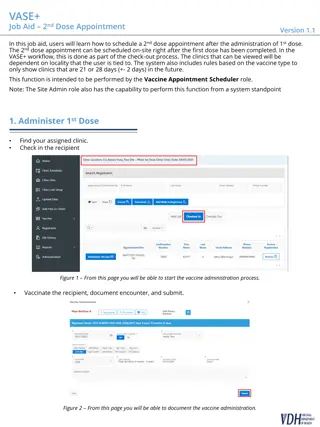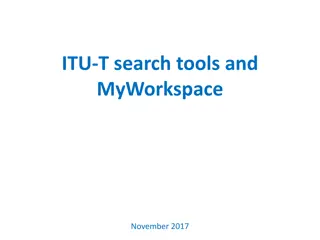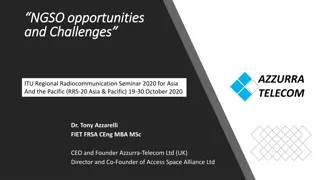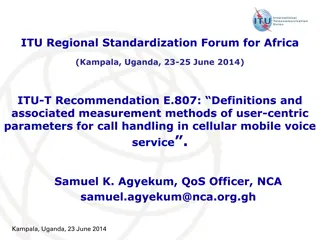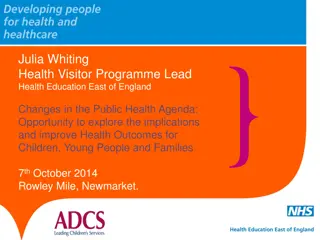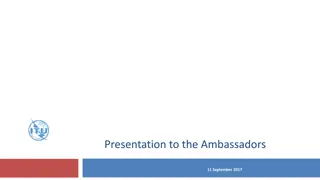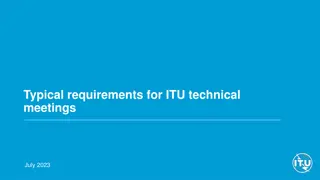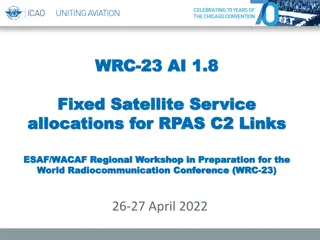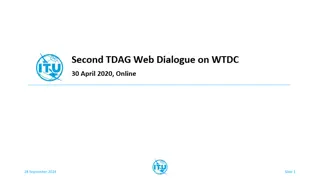Insights from 2nd ITU-WHO Workshop on AI for Health
The 2nd ITU-WHO Workshop on Artificial Intelligence for Health held in New York discussed key topics including AI applications in healthcare, data availability, country priorities, and the importance of ensuring standards and ethical practices. Participants emphasized the need for collaboration, unbiased data sets, and trustworthy frameworks to drive progress in AI for health.
Download Presentation

Please find below an Image/Link to download the presentation.
The content on the website is provided AS IS for your information and personal use only. It may not be sold, licensed, or shared on other websites without obtaining consent from the author.If you encounter any issues during the download, it is possible that the publisher has removed the file from their server.
You are allowed to download the files provided on this website for personal or commercial use, subject to the condition that they are used lawfully. All files are the property of their respective owners.
The content on the website is provided AS IS for your information and personal use only. It may not be sold, licensed, or shared on other websites without obtaining consent from the author.
E N D
Presentation Transcript
FGAI4H-B-002 New York, 15-16 November 2018 Source: TSB Title: Summary slides 2nd ITU-WHO Workshop on Artificial intelligence for health Purpose: Discussion | Information Contact: TSB E-mail: tsbfgai4h@itu.int
Session 1: Focus Group on AI for Health Session 1: Focus Group on AI for Health Health affects almost all of the UN SDGs Standards should be as important in the health field as they are in communications, technology, etc. Please submit Your data Your algorithms The proposed model/process is open and inclusive and adds clarity to the field
Session 2: Applications and Use Cases for AI in Health Session 2: Applications and Use Cases for AI in Health Physicians create an ecosystem around their patients Think expansively how AI can help radiology and medicine beyond diagnostics, but also for instance in administration not just AI can detect XYZ __% better than a physician AI can help with physician and expert shortages Some fields have yet to really embrace technology (e.g. psychiatry) Understand your data sets Our data are biased...our patients only go to the doctor when they re sick We need to incentivize progress
Session 3: Data Availability and Benchmarking Session 3: Data Availability and Benchmarking Beware of publication bias, p-value hacking, etc. Worldwide, the confidentiality of health data is in jeopardy Advanced privacy-enhancing technologies can be effective enablers Beware of hype: adoption of unassessed technology causes patient harm We need a framework for assessing efficacy and cost effectiveness Standardization and regulation of AI in health can only be achieved if people trust the whole process to be safe, secure and fair
Session 4: Session 4: Country Priorities for Use of AI for Health Country Priorities for Use of AI for Health We need to understand the functions and tasks that lend themselves to AI adoption and those that don t We need a convergence of multidisciplinary expertise to address the evolution of AI Computer science alone will not produce breakthrough AI systems for health We need to understand country context, especially in low and middle- income countries Data bias concerns are significant Where do the medical and legal risks lie when machines make decisions?
Session 5: Funding of AI for Health Session 5: Funding of AI for Health There need to be solutions for after AI diagnoses disease We need AI-assisted clinical decision support Main problem is the lack of resources in medicine Industry cooperation is important The digital AI future is here
